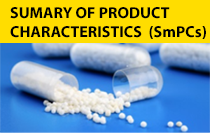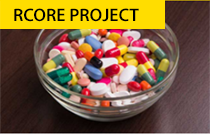
Report Adverse Reaction

Approved fees Schedules

Products Recall And Alert

For Stakeholders

Submit a Complaint

FAQs

Submit Advert Application

Submit Advert Application

Consumer Education
About US
Corporate profile

The FDA was established in 1992 as the Food and Drugs Board (FDB) on the basis of the 1992 Food and Drug Law (PNDCL 305B), later amended by the Food and Drugs ACT of 1996. The Food and Drugs legislation was revised in 2012 and integrated into a new Public Health ACT 851, 2012 that gave birth to the Food and Drugs Authority.
The FDA’s legal mandate is found in Part 6 (Tobacco Control Measures), Part 7 (organisation and responsibilities of the FDA), and Part 8 (Clinical trials) of the Public Health Act, 2012 Act 851.
The FDA is the National Regulatory Body responsible for the regulation of food, drugs, food supplements, herbal and homeopathic medicines, veterinary medicines, cosmetics, medical devices, household chemical substances, tobacco and tobacco products, blood and blood products as well as the conduct of clinical trials protocols.
The Public Health Act, 2012, Act 851 provides for the establishment of a Governing Board with the responsibility of ensuring the effective implementation of the functions of the Authority. The Authority currently has eleven-member Governing Board.
Administratively, the FDA is headed by the Chief Executive Officer who reports directly to the Governing Board. The Chief Executive Officer of the FDA takes responsibility for the daily operational management, service delivery and strategic issues of the FDA.
The FDA has five (5) technical advisory committees (TAC) for safety of medicines, safety of vaccines and biological products, medical devices, clinical trials and nutrition. The committees are made up of experts from different scientific backgrounds. The TAC provides expertise to assist the FDA in making appropriate risk management decisions, however, the decision-making responsibility remains with the FDA.
Mission
The FDA exist to ensure the safety, quality and efficacy of human and veterinary drugs, food, biological products, cosmetics, medical devices, household chemical substances and clinical trials, and the control of tobacco products through the enforcement of relevant standards to protect public health.
Vision
To protect the health and safety of people in Ghana and be a global centre of excellence for food and medical product regulation.
CORE VALUES
The culture of the FDA was defined by these behavioural traits, and is tangible throughout the organization. At every touch point, whether between departments or with clients or other stakeholders, these characterise all interactions within the FDA.
We live up to the very highest professional standards in our fields of expertise as well as in personal behavior at all times.
Nothing supersedes our core mandate of protecting public health
We earn the trust of all our key stakeholders.
Our outputs are recognised as assured and guaranteed
We are accountable for making an invaluable contribution to government’s health agenda
We own completely our areas of influence with all our stakeholders, ensuring that they can rely on us at all times.
We earn the trust of all our key stakeholders.
Our outputs are recognised as assured and guaranteed
We achieve more through collaboration; we therefore actively seek synergies that allow us to deliver our mandate in a cohesive manner
We harness the diversity of our skills and expertise to collectively deliver our mandate.
We focus on the “big picture” in our approach to work.
Functions of the Authority
Ensure adequate and effective standards for food, drugs, cosmetics, household chemicals and medical devices
Monitor through the District Assemblies and any other agency of State compliance with the provisions of Part 6, 7 and 8 of the Public Health Act, 2012 (ACT 851)
Advise the Minister on measures for the protection of the health of consumers
Advise the Minister on the preparation of effective Regulations for the implementation of Part 6, 7 and 8 of the Public Health Act, 2012 (ACT 851)
Approve the initiation and conduct of clinical trials in the country
Perform any other functions that are ancillary to attaining the objects of the Authority
History
The Food and Drugs Board was established by the Food and Drugs Law 1992 (PNDCL 305B) and was amended by the Food and Drugs (Amendment) Act 523, 1996, to provide for the fortification of salt to alleviate nutritional deficiencies and to bring the provisions of the law in conformity with the 1992 Constitution of the Republic of Ghana.
Before 1990, the control of drugs and the practice of pharmacy profession were under the Pharmacy and Drugs Act (Act 64) 1961. In 1990, the Provisional National Defense Council (PNDC) passed the Narcotics Drugs Control, Enforcement and Sanctions Law (PNDCL 236). This law established the Narcotics Control Board to deal with the rising incidence of drug abuse in the country and threatening dimensions that illicit drug dealing had taken internationally.
In 1992, the PNDC separated the control of drugs other than narcotics from the practice of Pharmacy.
The Food and Drugs Law, 1992 (PNDC 305B) was then enacted to control the manufacture, importation, exportation, distribution, use and advertisements of food, drugs, cosmetics, chemical substances and medical devices. The Pharmacy Act 1994 (Act 489) was subsequently passed in 1994 to establish the Pharmacy Council to control the practice of the Pharmacy profession and the registration of Pharmacists. Although the Food and Drugs Law was passed as far back as 1992, it was not until 26th August 1997 that the first Board was inaugurated.
The Food and Drugs Board however became an Authority with the name Food and Drugs Authority in 2012 by the passage of the Public Act, Act 851, 2012.
THE FDA MISSION
The FDA exist to ensure the safety, quality and efficacy of human and veterinary drugs, food, biological products, cosmetics, medical devices, household chemical substances and clinical trials, and the control of tobacco products through the enforcement of relevant standards to protect public health.

Subscription Management Centre












